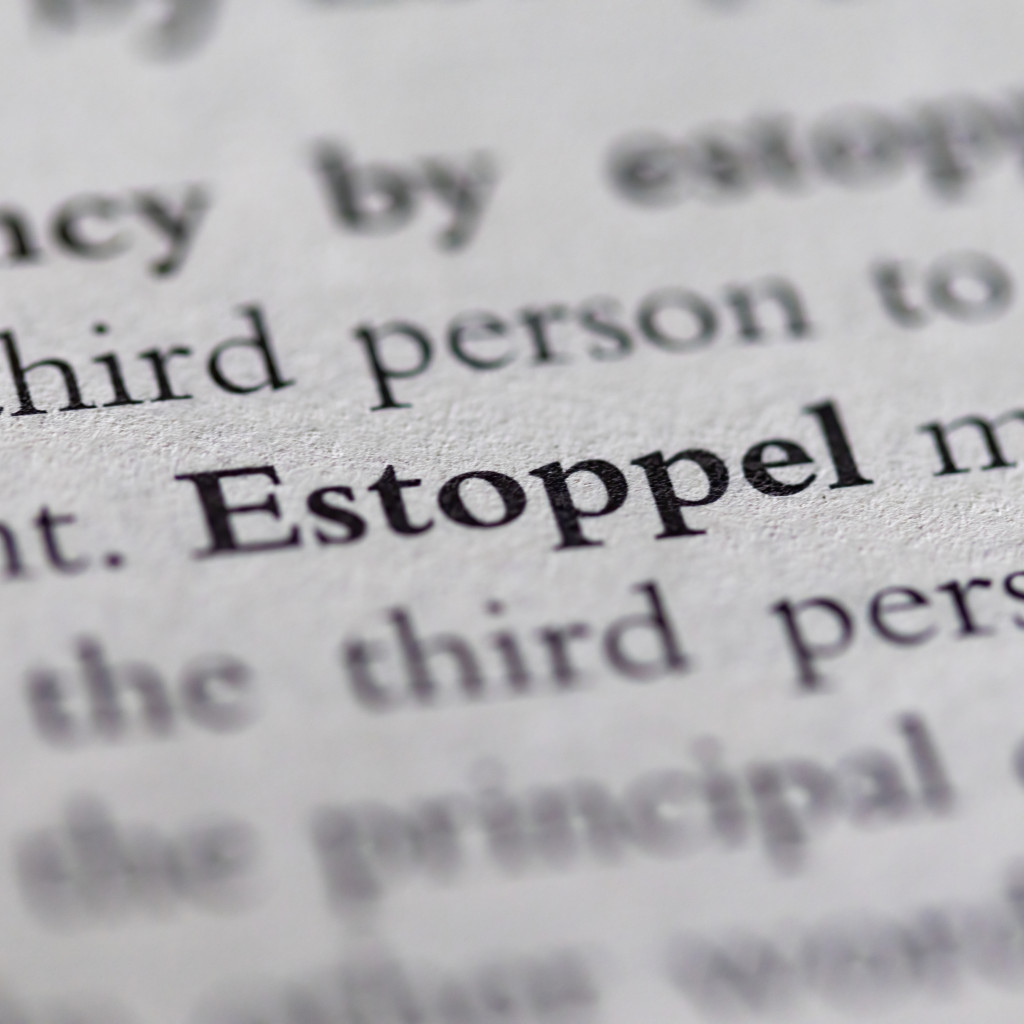The recent case of Armstrong v Armstrong considers the issue of detriment in the context of a proprietary estoppel claim.
What is proprietary estoppel?
A proprietary estoppel claim occurs when an individual is not the legal owner of a property but circumstances arise that allow them to seek a financial interest in it.
Broadly speaking, a proprietary estoppel claim requires:
- an assurance or a promise, which can be implied, about the property;
- a reliance on this assurance; and
- some detriment to be suffered as a result of this reliance.
Our previous insight explained what the requirements are for a proprietary estoppel claim in greater detail and what would amount to a detriment.
Proprietary estoppel operates on the basis that it is unfair or unconscionable to go back on this assurance where all three requirements are fulfilled. The purpose of this claim is to remedy and undo the unconscionable conduct; that is to satisfy the individual’s expectation and fulfil the promise.
The scales of benefit and detriment
As part of the Court’s determination of whether there has been a detriment, any benefits that the individual asserting this claim has enjoyed will be taken into account. Put simply, if the benefits enjoyed outweigh the detriment, then it cannot be asserted that it is unfair to go back on the assurance.
Unfortunately, usually, the facts of a case are never this straightforward and complications can arise when the line is not so clear cut. Therefore, the Courts complete a balancing exercise to determine whether the benefits tip the balance and ultimately outweigh the detriment incurred.
The application to recent cases
The case of Armstrong v Armstrong provides a useful insight as to how this balancing exercise is undertaken.
Alan and Margret Armstrong were husband and wife and had two children, Richard and Simon. The Armstrong family operated a farming partnership. The partnership property consisted of two farms. Both sons had been working on the farms for over 30 years and there had been assurances from both Alan and Margret that they were to each inherit one farm upon the death of both parents. These assurances were reinforced through indications that mirror wills had been made to ensure this.
Margret died and, over time, Richard and Simon’s relationship broke down. This poor relationship caused major problems within the family. Alan subsequently decided to disinherit Richard from the estate entirely. Richard therefore brought a claim for proprietary estoppel against his father’s estate.
Richard advanced arguments that he suffered a detriment as he worked over 3 decades on the farm, he had very little money from this and he gave up alternative career opportunities. His detriment was that he had worked all his life before Alan’s death in the expectation that he would inherit the farm.
The counterarguments centred on the fact that Richard had benefitted from rent-free accommodation and an ability to draw a wage from the partnership. It was submitted that he enjoyed a higher standard of living than if he had not worked on the farm.
The arguments that the benefit Richard enjoyed outweighed the detriment were rejected. The Court clarified that the weighing of benefit and detriment was not a mathematical task whereby you calculated the monetary value of the detriment and benefit. That is too simplistic and, instead, the matter must be looked at as a whole and in the round.
Evidently, whilst the benefits enjoyed must be considered, the sole fact that there was a benefit will not offset the detriment automatically.
Case comment
It is clear that whether a benefit will outweigh a detriment is completely dependent on the facts of the case. In line with the Armstrong case, it is necessary to look at the facts as a whole and examine each dispute’s specific facts to determine what view the court would likely take.
Our expertise allows us to help you navigate the legal intricacies of these sorts of cases. Whether you are seeking to pursue a proprietary estoppel claim or you are defending a claim, we can advise you as to the merits of a claim and the best way forward according to the individual circumstances of your dispute.
Our team of experts deals with these cases regularly and will be happy to assist you. As a top firm for client satisfaction, we have built a reputation as good listeners, who can help break down complex legal jargon into words you can understand and are experts at advising on your specific situation.






